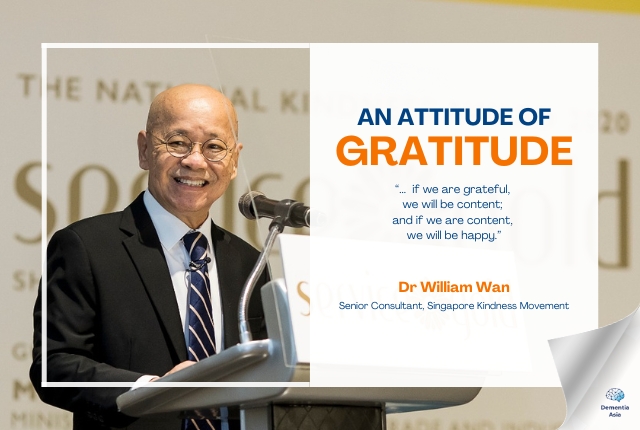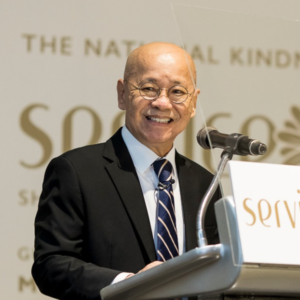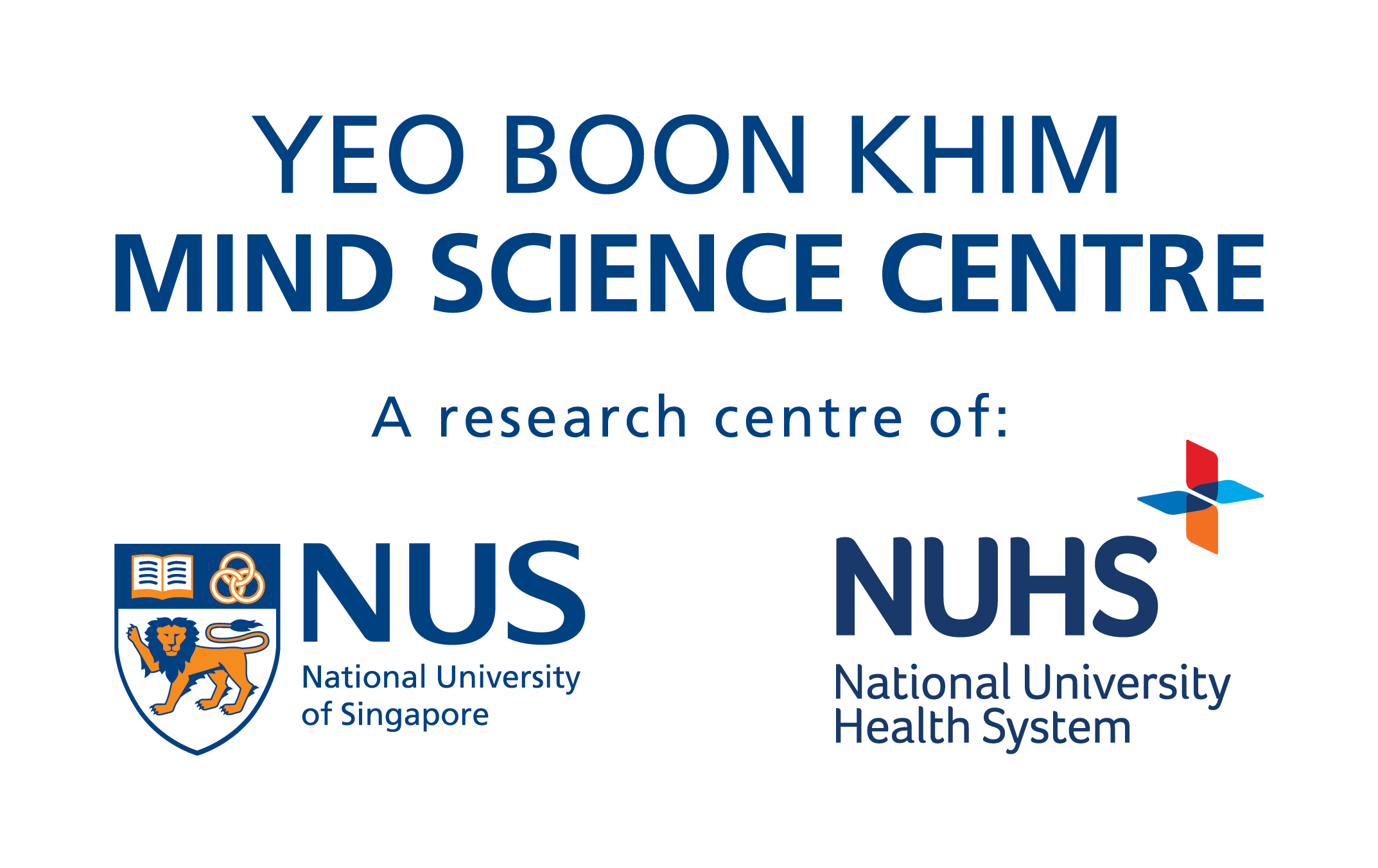An Attitude of Gratitude
A column written by Dr William Wan, Senior Consultant of the Singapore Kindness Movement

“In ordinary life, we hardly realize that we receive a great deal more than we give, and that it is only with gratitude that life becomes rich.” – Dietrich Bonhoeffer
We have just achieved another important milestone as a nation – a peaceful handover of national leadership to Prime Minister Lawrence Wong. PM Wong has a job cut out for him. All of us trust that he will continue to lead us “to achieve happiness, prosperity and progress for our nation”, an aspiration at the core of our national pledge.
Prosperity is a successful, flourishing, or thriving condition, especially in financial respects. Happiness is a subjective state of well-being, pleasure, contentment and joy. And progress is a development towards an improved or more advanced condition.
Reflecting on these values, I am struck by the idea that it is possible to be unhappy not because we are not prosperous or progressive but because we are not aware of our own prosperity and progress, therefore not content with what we have. It occurs to me that happiness does have a lot to do with contentment, which is essentially a state of satisfaction.
It also occurs to me that the key to contentment is gratitude. It follows that if we are grateful, we will be content; and if we are content, we will be happy.
What is gratitude? Here’s a classic definition: Gratitude is the quality of being thankful and showing appreciation for what one has received, whether tangible or intangible. It involves recognizing the good in one’s life, acknowledging the sources of this goodness, and often expressing thanks. Gratitude can be directed towards other people, nature, or a higher power, and is associated with positive emotions, improved well-being, and stronger relationships.
That was the theme of the Singapore Kindness Movement a few years ago: “Say thanks and make someone’s day.” But that is only half the truth for an attitude of gratitude is not only good for others, it is also good for us.
Here’s why an attitude of gratitude is good for us.
- It enhances our mental health. A study conducted by Emmons and McCullough (Journal of Personality and Social Psychology 84(2) 2003, 377-89) found that those who wrote down things they are grateful for are 25% happier than those who wrote down things that bothered them.
- It enhances our physical health. The same study also measured general health as indicated by the participants’ physical symptoms. They found that those who are grateful exercise more and experienced less symptoms of illness.
- It enhances our emotional health. Grateful people are generally more joyful, excited, energetic, enthusiastic, determined, strong, interested and attentive. In other words, they are more positive.
- It makes us more thoughtful and generous towards others, resulting in acts of kindness.
- It makes us live longer. According to a ‘nun study’ where sisters of Notre Dame were studied for 60 years, they found that those who recorded more gratitude lived a good 6-10 years longer than those who did not. (Danner, Snowdon, and Friesen, ‘Positive emotions in early life and longevity; findings from the nun study’, Journal of Personality and Social Psychology 80(5), 2001, 804-13).
- It improves our relationships. A University of Virginia study in 2008 found that younger members of a sorority who received gifts from seniors have better relationship with the seniors when they responded to the gifts with gratitude. This is so important because in long term relationships, we tend to take our partners for granted. Practising gratitude helps us to see the beauty inherent in our relationship and helps us avoid taking each other for granted. Gratitude leads to kindness and kindness increases gratitude.
- It helps us see life as a gift. Life comprises a web of relationships and a bundle of moment-by-moment experiences and when we can accept people and experiences with gratitude, it enhances our quality of life. There is increasing scientific evidence that seeing life through the lens gratitude reduces our stress level. Apparently, our stress hormones and pro-inflammatory cytokines in our blood stream are positively affected when we feel grateful. . Our heart and immune system, and even the chemistry and structure of our brain are positively affected by our attitude of gratitude. A University of Connecticut study found that those who are able accept the first heart attack as a gift are less likely to have a subsequent attack! (Journal of Consultation and Clinical Psychology 5(1), 1987, 29-35.)
Dr David Hamilton in Why kindness is good for you concludes, “Counting our blessings helps us appreciate the things we already have…We start to see things we’ve never noticed before and gradually feelings of unhappiness or dissatisfaction are replaced with happiness and satisfaction.”
So, here’s wishing our nation under new management, “prosperity, happiness and progress”!

This article was contributed by Dr William Wan, 77, the previous General Secretary of the Singapore Kindness Movement. Passionate about making a difference to Singapore, Dr Wan contributes to several non-profit organisations and is also an advocate of active ageing. He sums up his journey thus far as such:
“A life lived in multiple chapters – from adversarial litigation to mediating kindness. Now breaking the silver ceiling with spring in the autumn of my life.”
